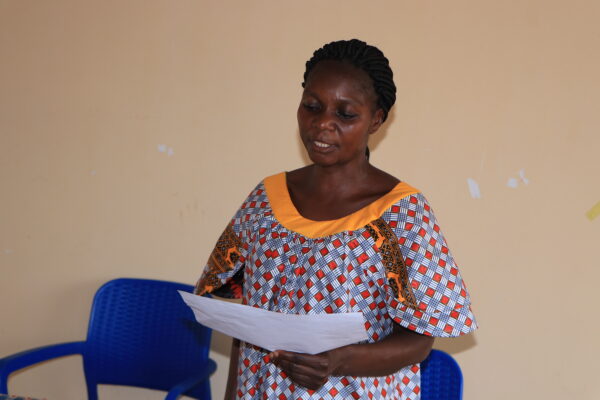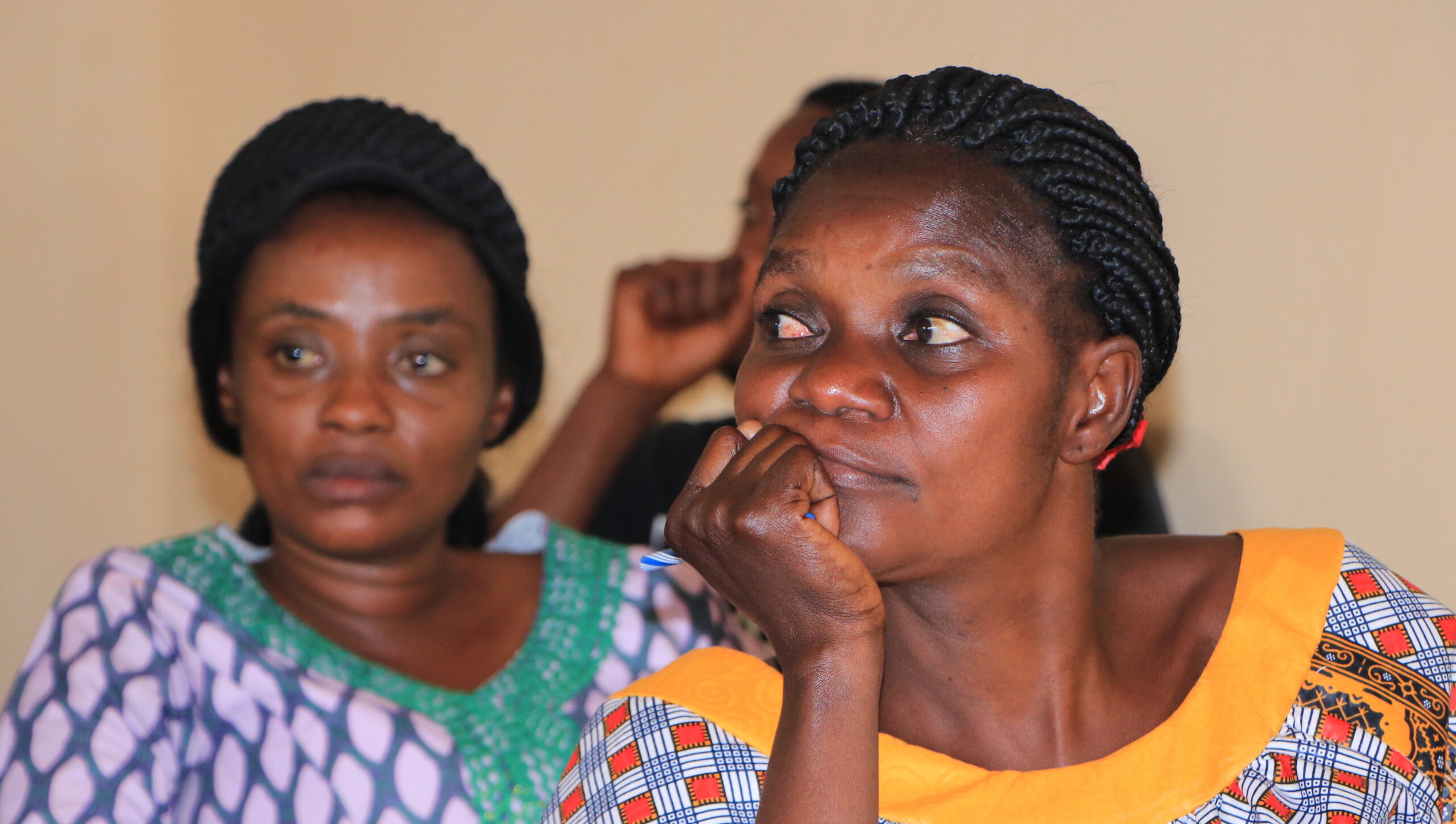Paving the way for inclusive governance in Kasaï
The Inclusive Governance for Peace programme in Kasaï Province, Democratic Republic of Congo (DRC), implemented by Action pour la Paix et la Concorde (APC) in partnership with Interpeace, has made significant progress in empowering women's and youth leadership.
For a long time, women in the region have been marginalised and their decision-making authority limited. However, a new era of inclusivity and equality is emerging, providing women with more opportunities and rights.
In 2019, Munda Tshonga Mado, a 47-year-old mother of six, was a homemaker. By 2020, she had become the deputy of the "Mawika" district in Kamonia, Kasaï Province. Her leadership, characterised by democracy, inclusivity, and dedication to peace, has earned her recognition and appreciation in her role as district head.
Since 2021, Mado has been participating in peacebuilding events, including training sessions for community-based organisations. APC and Interpeace organised these sessions, which focused on conflict analysis, positive conflict transformation through mediation and dialogue. Women like Mado found a platform to reclaim their voices and assert their roles in the public sphere.
Sharing her story, Mado says: "During this time, we attended several training sessions with local authorities. One day, the chief of Kamonia district, Job Kayimbo, approached me to take on the role of chief of the Vatican locality, one of those in his district. Shortly thereafter, a conflict arose between the incumbent chief of the Mawika district and his deputy. Faced with the difficulty of reconciling them, the mayor of the rural commune of Kamonia, who also appreciated my work, appointed me as chief of the Mawika district, consisting of five localities."
Mado's appointment as the chief of the Mawika district, a position previously considered unattainable for women, shattered stereotypes and highlighted the potential of women to lead in traditionally male-dominated fields. She actively participated in peacebuilding activities for the project "Renforcer la gouvernance pour la paix en République démocratique du Congo," funded by the Swedish International Development Agency (Sida).
In 2022, Mado's journey took a significant step forward with the launch of APC's project aimed at enhancing women's leadership. She actively participated in workshops and training sessions along with her peers. These sessions covered various topics including women's leadership, UN Resolutions 1325 and 2325, and the factors that contribute to women's exclusion from decision-making processes. As a result of these efforts, a positive shift in attitudes occurred, with male participants now advocating for women's inclusion in positions of authority within peace mechanisms and political arenas.
During a workshop on peace governance in November 2023, Clément Yaudiko, the President of Civil Society in Kamonia, expressed his support for Mado's development initiatives. However, Yaudiko also emphasised the importance of addressing cultural barriers that hinder the empowerment of women and the progress of young people in the Kasai area.
Mado faced discrimination from male politicians, leading to a limited number of votes cast against her in the 2023 election. Undeterred, she maintained her resolve and decided to contest as a national deputy for her party, the Union pour la Nation Congolaise (UNC), in the Kamonia electoral district. Despite falling short of a majority in votes, Mado persisted and showcased her dedication to the political arena by actively pursuing mentorship opportunities.
Her journey reached its pinnacle when she was elected as the president of l’Union des Jeunes pour le Développement Intégral de Kamonia (UJDIK), showcasing her ability to mobilise at the grassroots level and effectively engage with the community. At present, Mado collaborates with local leaders, providing mentoring and guidance.
Mado's journey serves as a reminder of the importance of gender equality and women's empowerment in Kasaï. It advocates for inclusive governance in peace-related matters and highlights the province's untapped potential to fully utilise the capabilities of its women. This paves the way for a future where women can lead with confidence and conviction.


